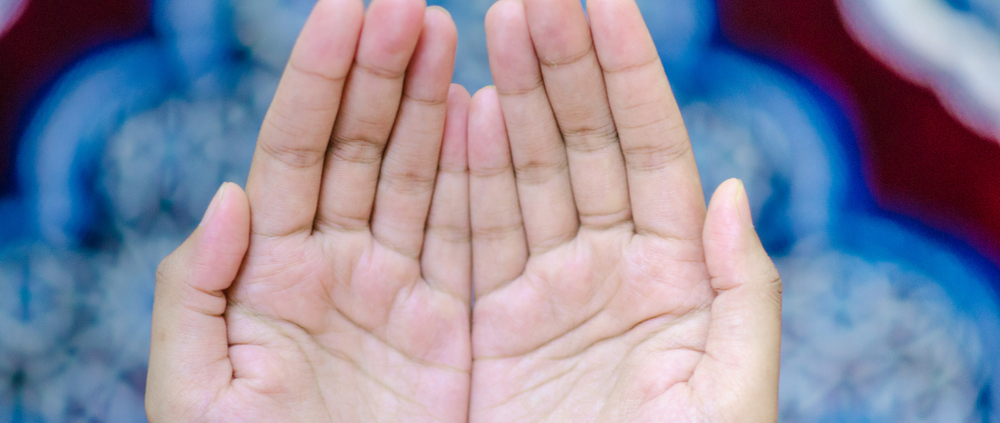Should We Raise Our Hands in the Shafi’i School during the Imam’s Dua for Palestine?
Shafi'i Fiqh
Answered by Ustadha Shazia Ahmad
Question
During salah, when the Imam makes dua, for example, during the witr or during recent duas for Palestine, should we raise our hands as well, or should we leave them hanging on the sides?
Answer
Thank you for your question.
What you describe is actually dua qunut, which is sunna to recite during the prayer during times of disaster.
It says in the Reliance of the Traveller:
(…) It is recommended to raise one’s hands throughout the supplication (O: palms up when asking the good, palms down when asking Allah to avert affliction). One does not stroke the face or chest with one’s hands after the supplication (O: as opposed to other supplications, for which it is recommended to wipe the face with the hands, as is mentioned in hadith). The imam says the supplications aloud. The follower says “Ameen” after each supplication that is audible to him and participates in the praises and so forth by responding with similar expressions. If the imam is inaudible, the follower himself says the supplication. When praying alone, one says it to oneself. When disasters (O: such as drought or an epidemic) befall the Muslims, they similarly supplicate in every prescribed prayer (O: after straightening up from bowing in the last rak‘a). [Keller, Reliance of the Traveller]
Please see these links as well: Reciting the Fajr Qunut Behind the Imam in Shafi’i Fiqh.
May Allah give you the best of this world and the next.
[Ustadha] Shazia Ahmad
Checked and Approved by Shaykh Faraz Rabbani
Ustadha Shazia Ahmad lived in Damascus, Syria, for two years, where she studied aqidah, fiqh, tajweed, tafsir, and Arabic. She then attended the University of Texas at Austin and completed her Master’s in Arabic. Afterward, she moved to Amman, Jordan, where she studied fiqh, Arabic, and other sciences. She later moved back to Mississauga, Canada, where she lives with her family.
